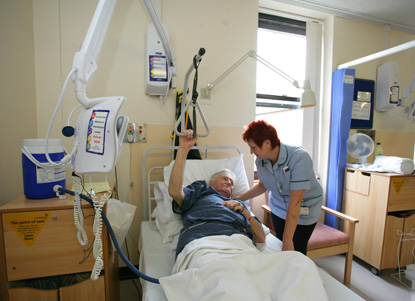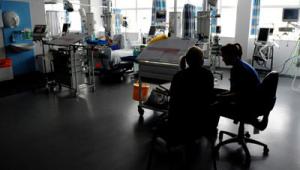By Richard Johnstone | 27 May 2011
Further delays to the government’s health reforms could detract from the 'urgent business' of saving £20bn from the cost of the NHS, a health think-tank said today.
 As the Nuffield Trust
published its views on the Health and Social Care Bill, a
spokesman warned against examination of the Bill moving from ‘healthy scrutiny
to playing politics’.
As the Nuffield Trust
published its views on the Health and Social Care Bill, a
spokesman warned against examination of the Bill moving from ‘healthy scrutiny
to playing politics’.The trust says clarity is needed so that clinicians, managers and political leaders can focus on the ‘more pressing’ financial challenge.
The controversial proposals in the Bill, which include GPs taking on the commissioning of health care and opening up the NHS to more providers, were put on hold last month for consultation.
Yesterday Deputy Prime Minister Nick Clegg said that ‘big changes’ to the Bill would mean the legislation would have to return to committee stage in the Commons. He said: ‘I don't think it would be right for us to hold this listening exercise – to make big changes to the legislation – and then to seek to bounce it through Parliament. I think we will need to send the Bill back to committee. I have always said that it is best to take our time to get it right rather than move too fast and risk getting the details wrong.’
But the Nuffield Trust argues that as parts of the reforms are already under way, including GP commissioning pathfinder consortiums, a modified Bll should be passed to keep the ‘health service on the rails between 2011 and 2015’ when it must make the savings.
The trust’s report, The Health and Social Care Bill: where next?, also calls for the ‘opaque’ NHS finances to be made transparent if the reforms are to be effective. It says: ‘Not infrequently money is moved between communities on the basis of (poor) financial performance rather than need.’
Such transparency could free funds that currently have to be pooled centrally as a contingency for failure.
To help increase clarity, a NHS bank should be established to take the place of current regulator Monitor’s role in overseeing foundation trusts.
Monitor is set to become the economic regulator for all health and social care in England. The independent bank would be able to provide information based on which hospital trust has borrowed money from it. This would also make NHS managers exert more financial control to meet the repayments, Nuffield spokesman Frank Soodeen told PF.
Other submissions to the consultation, which closes at the end of the month, were also published today.
The Local Government Association said the plans represent ‘a great opportunity to fully integrate health, public health and social care’. It called for a stronger role for local Health and Wellbeing Boards.
Chair Baroness Margaret Eaton said: ‘It’s crucial GP consortia don’t just focus on their own patients, but also work with councils on the “Cinderella services” such as homelessness, mental health, learning disabilities, AIDS/HIV, dementia and child health. We cannot afford to let vulnerable and often voiceless members of society fall through the cracks of a doctor’s practice list.’
Unison called the plans ‘seriously flawed’ and sais they should be scrapped, with a royal commission established to investigate the long-term demands on the NHS.
Another health think-tank, 2020health, called on the government to allow poor hospitals to fail, so as not to hamper competition.





















